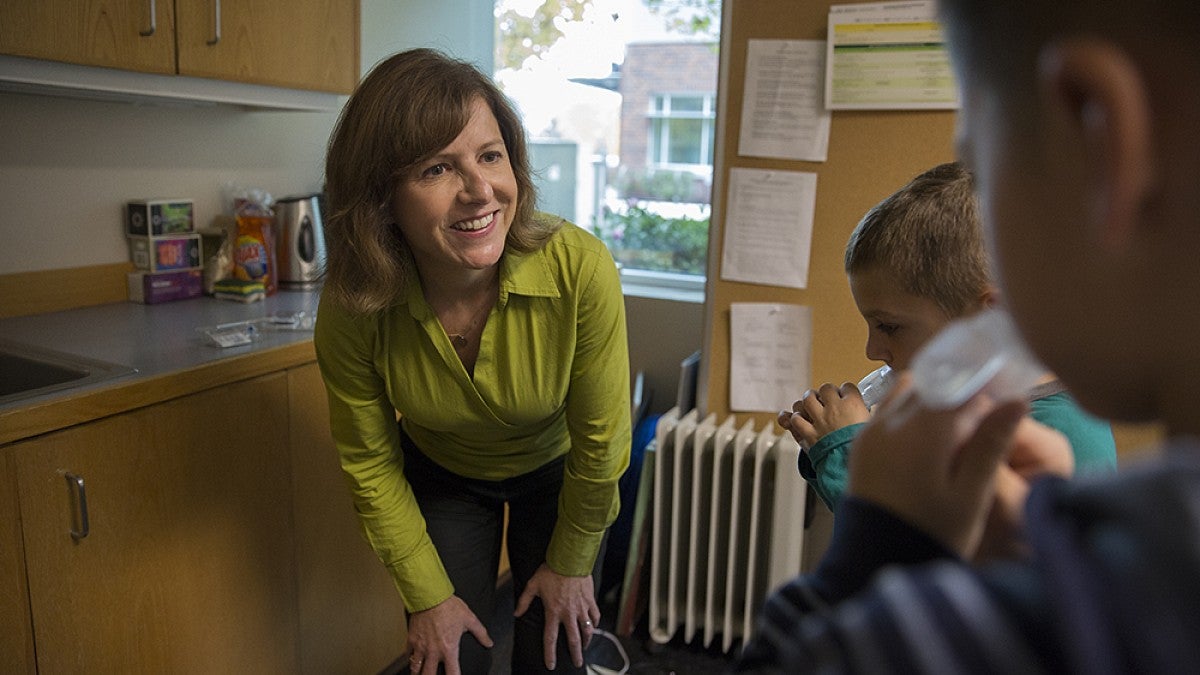Adopted children’s genetic characteristics can influence the parenting they receive, according to new research.
The findings, from the ongoing longitudinal Early Growth and Development Study, are described in Monographs of the Society for Child Development. The research could be used to improve policies and interventions that seek to promote children’s positive social development and mental health.
“This study highlights the importance of shifting societal views from a ‘nature versus nurture’ perspective to instead focus on ‘nature via nurture,’” said co-author Leslie Leve, Lorry Lokey Chair in Education and a professor at the University of Oregon’s Prevention Science Institute, part of the Office of the Vice President for Research and Innovation. “Nature and nurture are intricately intertwined, and understanding how they work together will have a greater impact on programs and practices that promote children’s well-being than thinking about them as competing forces.”
A few major themes emerged from the work. Children’s genetic makeup can evoke specific parenting responses, and children’s genetic makeup influences the kind of parenting they need. Children’s genetic makeup can also accelerate or halt downward spirals of parent-child interaction.
“The themes reinforce the commonly held view that parenting is important for child development, while also showing that a child’s genetic makeup can bring about specific parenting responses and can also influence the kind of parenting that helps children thrive, potentially interrupting conflictual cycles of parent-child interactions,” Leve said.
Supported by grants from multiple divisions of the National Institutes of Health, the Early Growth and Development Study has involved the cooperation of 45 adoption agencies in 15 states. The study is ongoing and has analyzed data from interviews, surveys and direct observation of 561 children adopted shortly after birth, along with their birth and adoptive parents.
“Historically, there have been other important adoption studies in the field of psychology, but ours is the first to prospectively follow both adoptive and birth families since birth, gathering rich data from all parties in the adoption over more than a decade, with a focus on socialization processes and children’s social-emotional development,” Leve said.
The study moves researchers one step closer to allowing clinicians to use more detailed family-based interventions to better serve all children.
“The more we learn about how to best align specific parenting behaviors with specific child qualities, the better we will be at tailoring and adapting preventive interventions to best meet an individual child’s needs,” Leve said.
In addition to Leve, authors of the monograph are David Reiss, of the Yale Child Study Center; Jody M. Ganiban of George Washington University; Jenae M. Neiderhiser of Pennsylvania State University; Daniel S. Shaw of University of Pittsburgh; and Misaki N. Natsuaki of the University of California, Riverside.
“It’s been a tremendous opportunity professionally and personally to have played an integral role in this study for the past 20 years,” Leve said. “I went from being a postdoc who was still trying to fully understand the remarkable benefits of the adoption study design, to a mentor of students and postdocs who now lead their own research and papers within this study. I am consistently amazed by the teamwork and collaboration that this type of national study requires, and the new insights it delivers.”
—By Molly Blancett, University Communications
—Top photo: Leslie Leve explains biological sample collection to a youngster


